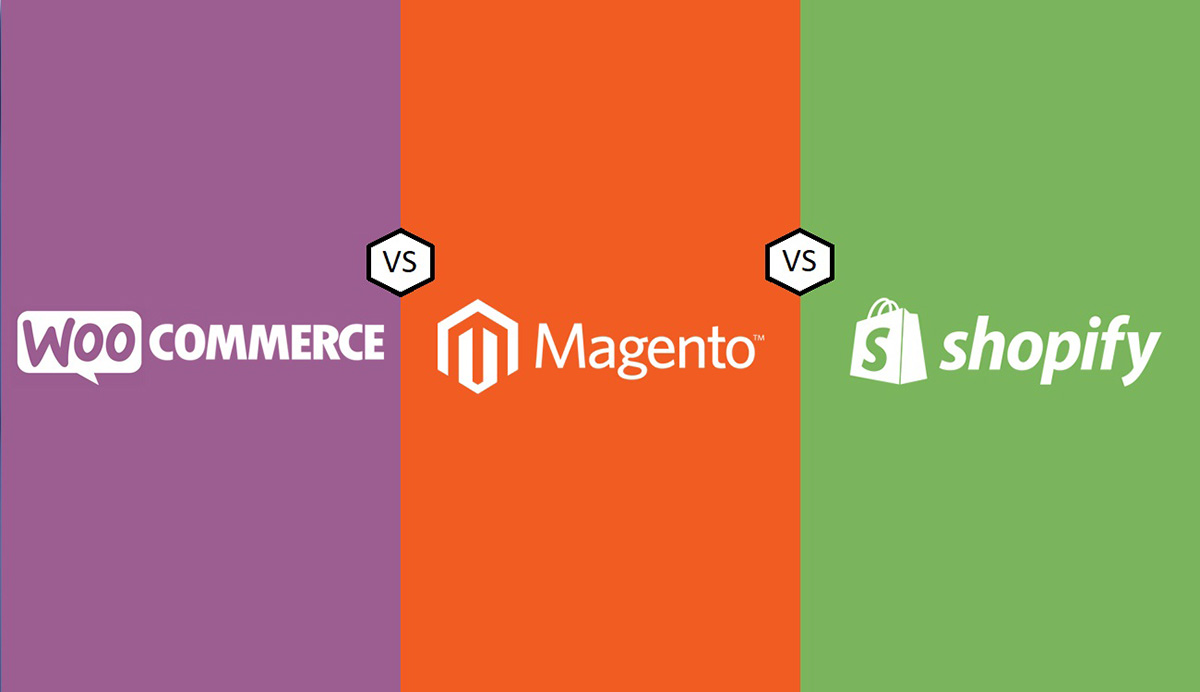The struggle is real when deciding which e-commerce platform is best for you, especially if you want to be affordable, get great support, and have the ability to measure the future. In our experience, most eCommerce sites on the web are powered by Shopify, Magento, and WooCommerce.
However, a burning question remains unanswered: which eCommerce platform is the best out of these three for you? The only way to answer this question is to do a thorough review and study popular eBusiness guides, which seems impossible, but you still need the best system for your needs.
In this article, we help you explore and understand the options by providing top-notch information on the three options to help you choose the right one for your needs.
WooCommerce
WooCommerce is a fully integrated open source e-commerce platform for entrepreneurs worldwide. Go beyond traditional e-commerce solutions and only be limited by your imagination. WooCommerce is built on WordPress, the platform that makes up over 34% of the website. Numerous plugins and extensions, such as the WooCommerce variable pricing, are there to help you make good sales.
1. A Modular System
WooCommerce stays together so you can add the options you need. It’s also designed to work with your favorite WordPress plugins, so you can keep the look you already love.
2. Sell Anything
From physical products and digital ads to subscriptions, content, and even assignments, you can sell anything with WooCommerce. Unlimited: WooCommerce is fully open source, meaning you can modify and categorize anything and everything. Since you have full control, you can add unlimited products and users and accept complete orders.
3. Worldwide Community
WooCommerce stores and developers come from worldwide, from Norway to South Africa, Canada to Japan.
Magento
Magento offers everything you need to build a useful eCommerce website. You can accomplish that task here when it comes to data management, advanced research, payroll gateways, and management. To better understand a few benefits of Magento, you should explore some of the many great eCommerce features that Magento offers.
1. Order Management
This provides ease of use, flexibility, and low shipping costs. The Order Satisfaction System offers shipping, ordering, returns, and order status systems. It includes everything an eCommerce business needs to generate revenue through order fulfillment.
2. Search Engine Optimization (SEO)
The Magento e-commerce platform is an SEO-friendly platform. It helps your eCommerce website rank as the best website through white hat SEO ads. Information, meta tags, and keywords can be easily categorized for each product, giving your team control over how Google, Yahoo, and others search engines crawl your website.
3. Advertising and Marketing
Allows you to manage and sort coupons, promotions, and more. It is important to have a good site that can be changed if desired to improve the client. Magento includes many resources offering themes and designs, which are free to use.
Shopify
Shopify is a Software as a Service solution used by businesses to set up e-commerce stores online. Unlike WordPress and Blogger, Shopify specifically builds, hosts, manages, and manages websites associated with the eCommerce business. The world’s most popular multi-channel content management system is often used by small and medium businesses worldwide.
1. SEO Tools
Search Engine Optimization (SEO) is the key to the growth of any online business as it helps improve the ranking of a website in search engines. Effective SEO techniques help companies increase their online presence by reaching out to the general public to boost sales. Shopify comes with various SEO tools that users can use to achieve their desired goals.
2. Dropshipping
Dropshipping is a commercial model where e-commerce companies buy products from other sources and ship them directly to their customers. This model eliminates the need to maintain a functional warehouse to store inventory. Companies must pay retail prices to customers by controlling the prices that customers see on their websites.
3. Analytics
Shopify provides a wide range of analytics tools that allow users to evaluate the performance of their online stores. Shopify Analytics provides actionable data related to customer activity, marketing, sales, and more to help businesses improve their performance and create more compelling data to increase sales.
Conclusion
It is best to use WooCommerce if you already have a platform with a WordPress hosting website. Because then you can install the WooCommerce plugin, and you don’t have to spend a penny.
Small businesses and individuals can use Shopify. If you don’t have any information and are just starting, it is recommended to choose Shopify because it is the lowest price.
Magento is a beast in performance, SEO, and extension. But for, an effective operation requires the developer’s experience and specialized resources. So, if you have enough money to hire experts, you don’t need to think twice when choosing Magento.
If you’re still undecided, consider the general guidelines: cost, technical support, themes, customizability, and performance. Once you have a brief idea of your needs, take a look at your plans for the future and make a decision!









